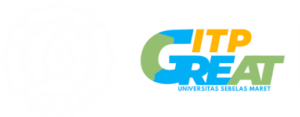The study Food Science and Technology Study Programme offers opportunities for students to take credits outside the study programme, allowing them to choose learning opportunities based on their interests for at least three semesters after entering the fifth semester and to respond to the Ministry of Education and Culture regulation No. 3 of 2020. This is organised through the idea and system of independent campus freedom to learn (Merdeka Belajar Kampus Merdeka, MBKM), where a MBKM Recognition Team is responsible for making sure that credits earned outside study programmes are in line with the PLOs curriculum.
Implementing the MBKM curriculum instructed by the Ministry of Education and Culture allows students to obtain a form of learning outside the classroom with the target of learning the same subjects as learning in class. In this regard, the guide adheres to MBKM Guidebook of the Directorate General of Higher Education, Ministry of Education and Culture of 2020, and the guide to implement MBKM, Educational Quality Assurance and Development Institute (LPPMP) UNS. This form of off-campus learning allows students to allocate a maximum of 20 credits. If students take 24 credits in one semester, a maximum of 20 credits can be taken off-campus, and the rest can be completed on campus. Off-campus learning schemes in AEC and FST include Industrial Internships, Entrepreneurship, Village Development, Research, Student Exchanges, and Humanitarian Projects. In this case, to ensure off-campus learning achievement, each study programme assigns an MBKM recognition team in coordination with the MBKM team at the faculty and university levels.


